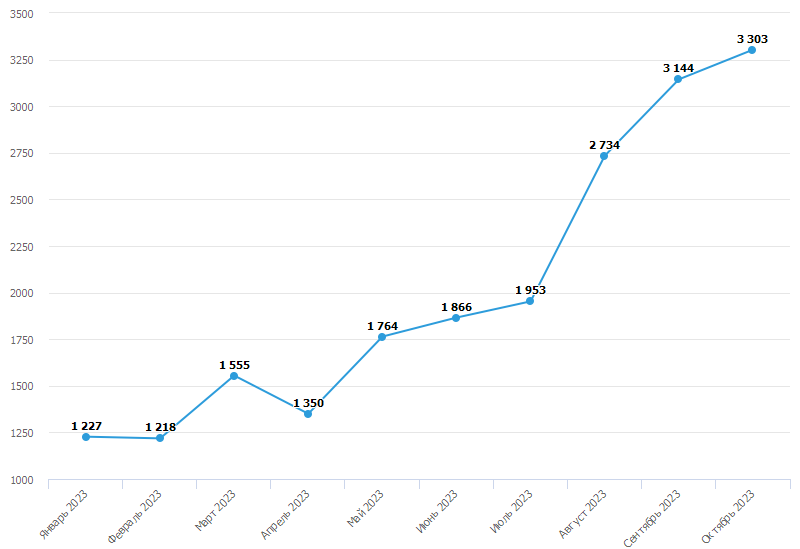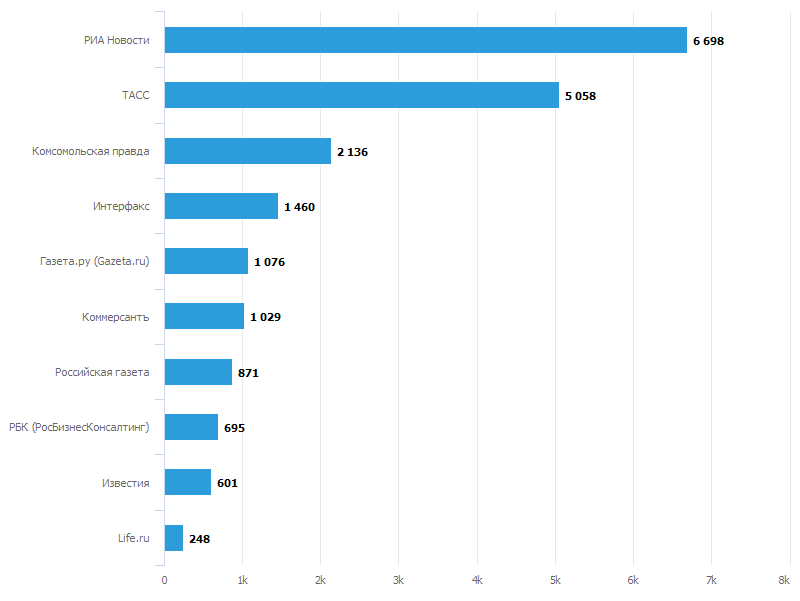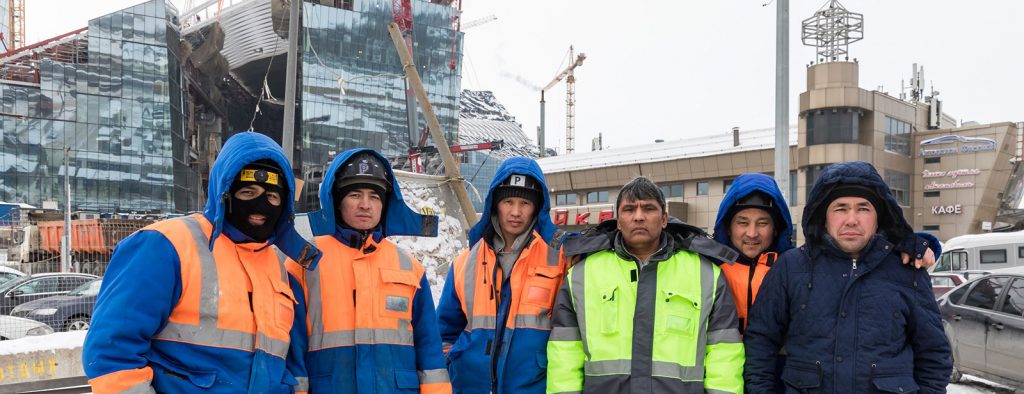To sustain its war in Ukraine, the Russian army needs conscripts. Olga Vlasova explores a growing anti-migrant discourse in contemporary Russian media. She concludes that it is probably connected to the country’s need for a further round of conscription before the spring 2024 elections
Russia is witnessing a significant growth in news about migrants. Analysis of major Russian news agencies, newspapers, online platforms and TV channels reveals a substantial surge in migrant-related coverage. There is an overwhelming predominance of negative discourse; in particular, references to migrant crime. The result is heightened animosity among Russian people towards the migrant population. The consistent rise in such content, particularly since July 2023, indicates a shift in the dynamics of public discourse.


There may of course be conventional reasons for this rise in negativity. One is that hostility to migrants aligns with Putin's broader strategy of unifying Russian society by portraying it as confronted by external and internal 'enemies'. This approach rallies citizens around a common cause, fostering a sense of unity against perceived threats.
Another is that, amid concerns of waning public support for the ongoing war in Ukraine, highlighting perceived threats from migrants could maintain public support for the war effort and the national leadership.
Yet, valid as these reasons might be, there appears to be a third, more unusual explanation at work. There is evidence that Russia is exploring a novel solution to address the shortage of frontline personnel. The government wants to mobilise migrants for the Ukraine conflict.
There is a war-weariness among people previously mobilised for the Ukraine war. Their families have called on the government for change. However, to ensure sustained military effectiveness, Russia must mobilise yet more conscripts to bolster and rotate frontline military personnel.
By encouraging negative media stories about migrants, the Kremlin can render them more 'palatable' to the public for deployment to the front
Announcing a second round of conscription in the run-up to presidential elections presents obvious challenges for the Kremlin. Pushing through an unpopular measure just before an election may well put the Kremlin on edge. Hence, the idea of conscripting migrants to avoid a further call-up for native Russians is gaining traction.
By encouraging persistent negative stories about migrants, the Kremlin may be attempting to delegitimise this group. It wants to render them more ‘palatable’ to the public for deployment to the front.
In Russian media, narratives about migrants often revolve around specific incidents, painting a biased picture. Reports suggest that nearly half of migrants resist Russian laws. One incident in St Petersburg, in which migrants clashed with locals, prompted an investigation. Other reported cases involve migrants brutally assaulting paramedics, and a horrifying double beheading in Moscow. These examples, along with numerous others, perpetuate a one-sided view of migrants. They fuel stereotypes and may influence Kremlin policies and decisions. There is noticeable media bias that tends to attribute crimes to migrants, placing a disproportionate focus on incidents in which they are involved.
This bias persists even though the proportion of criminal activity by foreign nationals is relatively low: just two to three individuals per 1,000. The rate among Russian citizens is significantly higher, averaging around six individuals per 1,000. In the first half of 2023, for example, only 18,000 crimes were committed by foreigners and stateless individuals: just 2.2% of the total.
These statistics are noteworthy, especially considering that the estimated summer population of foreigners in Russia was 6.6 million. Unofficial estimates claim the summer figure exceeded ten million.

It is not just the incidents themselves that make headlines, but the comments and statements from high-ranking officials. For instance, Patriarch Kirill of the Russian Orthodox Church warned of the risk of 'losing the country' to migrants of a different faith. Alexander Bastrykin, the Chairman of the Investigative Committee of the Russian Federation, labelled ethnic enclaves a threat to the local population. Bastrykin even proposed imposing a 'significant tax' for using migrant labour, and suggested revoking the citizenship of migrants who refuse to join defence units.
The Chair of Russia's Investigative Committee has suggested revoking the citizenship of migrants who refuse to join military defence units
A bill is currently going through the State Duma aimed at banning migrants from working in schools and hospitals, and from driving taxis. There is also a proposal to prevent migrant labourers bringing their families to Russia.
All the evidence points to media manipulation with a view to conscripting migrants. Official media is not paying much attention to this evidence.
The government is seizing migrants from mosques, markets, and migrant holding centres, and forcing them to sign contracts with the Russian Ministry of Defence
For several months, in cities across the country, government raids have been targeting migrant enlistment. The government is seizing migrants from mosques, markets, and migrant holding centres, and forcing them to sign contracts with the Ministry of Defence. The raids appear to be preparing for the unrestricted mobilisation of a substantial number of citizens, particularly among the migrant population. The irony, of course, is that the raids are taking place at a time of growing criticism and scrutiny of migrants. This has contributed to growing concerns about migrants' potential role in future military efforts.
In short, Russia’s dearth of frontline soldiers and its concerns about conscripting Russian natives in the run-up to the March 2024 elections appears to be having an impact on media portrayal of migrants. Migration, conscription and elections are becoming interconnected in a rather toxic way that is having a damaging effect on public discourse and policy direction.